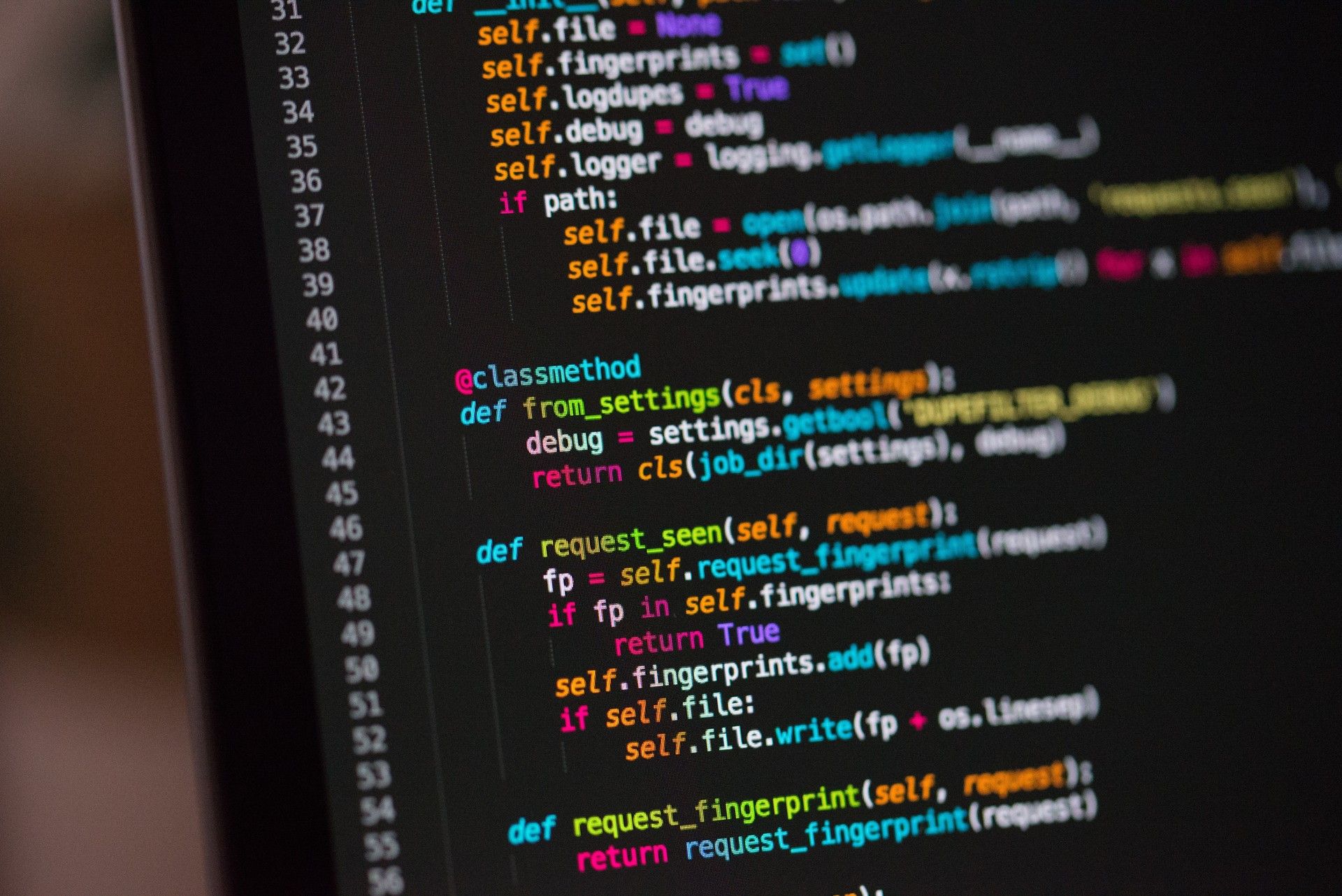Python machine learning packages have emerged as the go-to choice for implementing and working with machine learning algorithms. These libraries, with their rich functionalities and comprehensive toolsets, have become the backbone of data science and machine learning practices. Acquiring proficiency in Python has become essential for individuals aiming to excel in these domains.
The field of machine learning, known for its algorithmic complexity, has undergone a significant transformation in recent years. Gone are the days when developers had to painstakingly code every algorithm from scratch. Thanks to the power of Python and its extensive collection of libraries, modules, and frameworks, the area of machine learning has been revolutionized.

What are Python machine learning packages?
Python machine learning packages are libraries or collections of pre-existing code that are specifically designed to assist developers in building and implementing machine learning models. These packages offer a wide range of functionalities, algorithms, and tools that simplify the process of creating and training machine learning models.
These packages are built to handle various aspects of machine learning, including tasks such as classification, regression, clustering, dimensionality reduction, and more. They provide a consistent interface for different algorithms, making it easier for developers to work with and switch between them.
Some machine learning packages focus specifically on deep learning, which is a subset of machine learning that deals with neural networks and complex, hierarchical representations of data. These packages provide a flexible framework for building and training neural networks, and they often include high-level APIs that simplify the process of creating deep learning models.
In addition to machine learning-specific packages, there are also general-purpose scientific computing libraries that are commonly used in machine learning projects. These libraries provide support for efficient data manipulation, numerical computations, and mathematical operations. They offer data structures optimized for handling large, multi-dimensional arrays and matrices, which are essential for working with machine learning datasets.

Machine learning packages also often include tools for data preprocessing, model evaluation, and model selection. These tools help developers prepare and clean their data, assess the performance of their models, and choose the best model for their specific task.
By utilizing these machine learning packages, developers can save significant time and effort in building and implementing machine learning models. These packages provide a foundation of pre-existing code and algorithms that can be readily used, allowing developers to focus on the specific requirements of their project rather than starting from scratch.
Why do you need Python machine learning packages?
Python machine learning packages are essential tools for several reasons. Firstly, they provide developers with pre-implemented algorithms and functions, which significantly improves efficiency by saving their valuable time and effort. Instead of writing complex machine learning algorithms from scratch, developers can leverage these packages to access well-optimized and efficient implementations. This not only accelerates the development process but also ensures the reliability and correctness of the algorithms.
Python machine learning packages also offer a diverse range of functionality that caters to various machine learning tasks. These packages cover a wide array of areas including classification, regression, clustering, dimensionality reduction, and more. They provide a comprehensive collection of tools and algorithms specifically designed for these tasks, simplifying the development and implementation of machine learning models. Whether it is data preprocessing, feature extraction, model training, or prediction, these packages offer ready-to-use functions that assist developers throughout the entire machine learning workflow.
Moreover, these packages often specialize in deep learning, which is a subfield of machine learning focused on neural networks and complex hierarchical representations of data. With deep learning gaining significant popularity in recent years, Python machine learning packages provide a flexible framework for building and training neural networks. They offer high-level APIs that simplify the construction of complex models, making them accessible to both beginners and experienced practitioners. These packages enable developers to leverage state-of-the-art techniques in areas such as image recognition, natural language processing, and reinforcement learning, opening up a wide range of possibilities for solving complex problems.

Python machine learning packages also often incorporate general-purpose scientific computing libraries. These libraries are commonly used in machine learning projects and provide support for efficient data manipulation, numerical computations, and mathematical operations. They offer optimized data structures for handling large, multi-dimensional arrays and matrices, which are fundamental to working with machine learning datasets. By leveraging these libraries, developers can perform complex computations, vectorized operations, and advanced mathematical calculations with ease, enhancing the overall performance and efficiency of their machine learning workflows.
Furthermore, Python machine learning packages come equipped with built-in tools for data preprocessing, model evaluation, and model selection. These tools simplify and streamline various tasks involved in machine learning projects. They assist in data cleaning, feature scaling, and transformation, ensuring that the data is in a suitable format for model training. Additionally, these packages provide evaluation metrics, cross-validation techniques, and hyperparameter optimization methods, helping developers assess the performance of their models and select the best models for their specific tasks. This empowers developers to make informed decisions, optimize their models, and improve the overall quality of their machine learning solutions.
What are the best Python machine learning packages as of 2023?
As of 2023, there are several widely used and highly regarded Python machine learning packages available. These packages offer a rich set of tools, functions, and algorithms that empower developers and researchers in their machine learning endeavors.
Let’s explore some of the best Python machine learning packages and understand their features and applications.
TensorFlow
TensorFlow is an open-source deep learning library developed by Google. It provides a flexible and comprehensive framework for building and training neural networks. TensorFlow offers a high-level API called Keras, which simplifies the process of defining and training deep learning models.
It also supports distributed computing, making it suitable for large-scale machine learning tasks. TensorFlow is widely adopted in both research and industry and is known for its extensive community support.
PyTorch
PyTorch is another popular open-source deep learning library that emphasizes simplicity and flexibility. It provides a dynamic computational graph, allowing developers to modify models on-the-fly during training.
PyTorch offers an intuitive interface, making it a preferred choice for researchers and practitioners. It has gained popularity for its seamless integration with Python, enabling efficient experimentation and prototyping of deep learning models.
Mastering machine learning deployment: 9 tools you need to know
Scikit-learn
Scikit-learn is a widely used machine learning library that provides a broad range of algorithms and tools for various tasks such as classification, regression, clustering, and dimensionality reduction. It offers a consistent interface and is known for its ease of use.
Scikit-learn includes modules for data preprocessing, model evaluation, and model selection, making it a comprehensive package for machine learning workflows. It also provides various utilities for handling datasets and features, as well as for visualizing and interpreting the results.
Keras
Keras is a high-level neural networks library that runs on top of TensorFlow. It provides an easy-to-use and intuitive interface for building and training deep learning models. Keras abstracts away low-level details, allowing developers to focus on the model architecture and experimentation.
It supports both convolutional neural networks (CNNs) for computer vision tasks and recurrent neural networks (RNNs) for sequence processing. Keras is known for its simplicity and is often used by beginners to dive into deep learning.

Seaborn
Seaborn is a Python data visualization library built on top of Matplotlib. It provides a higher-level interface and enables the creation of informative and visually appealing statistical graphics. Seaborn simplifies the process of creating complex visualizations, such as heatmaps, scatter plots, and box plots, by offering easy-to-use functions and customizable themes.
It is commonly used in exploratory data analysis and for presenting insights and findings.
NLTK
NLTK (Natural Language Toolkit) is a library specifically designed for natural language processing (NLP) tasks. It offers a comprehensive suite of libraries and datasets for tasks like tokenization, stemming, tagging, parsing, and more. NLTK is widely used in academic and research settings for studying and implementing NLP algorithms and techniques.
It also provides access to numerous corpora, lexical resources, and pre-trained models, making it a valuable resource for NLP projects.
Matplotlib
Matplotlib is a powerful data visualization library for creating static, animated, and interactive visualizations in Python. It provides a wide range of plotting functions, allowing developers to create line plots, scatter plots, bar plots, histograms, and more.
Matplotlib offers a highly customizable interface and allows for detailed control over plot aesthetics. It is extensively used for data exploration, presentation, and publication-quality visualizations.

SciPy
SciPy is a library built on top of NumPy that offers a collection of scientific and numerical algorithms. It provides modules for optimization, linear algebra, signal processing, statistics, and more. SciPy is often used in machine learning for tasks such as optimization of model parameters, signal processing of data, and statistical analysis.
Its integration with NumPy and Matplotlib makes it a valuable tool for scientific computing and machine learning research.
We have made an overview of Python machine learning packages for you. As machine learning and AI technologies continue to take a bigger place in our lives day by day, you can get a slice of this giant cake with or without the necessary training.
Featured image credit: Photo by Google DeepMind on Unsplash.





